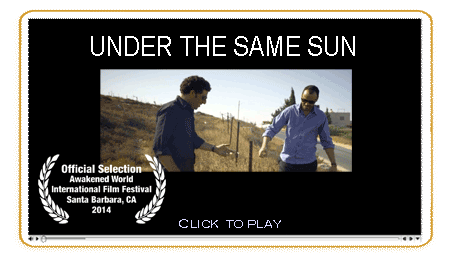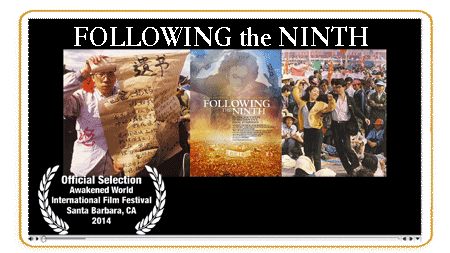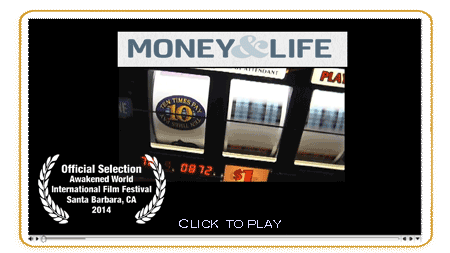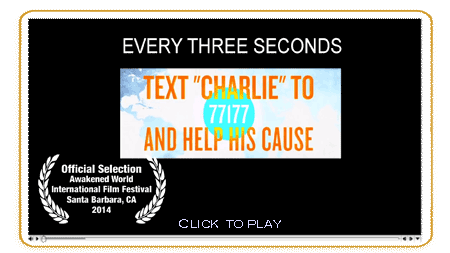|
|
|
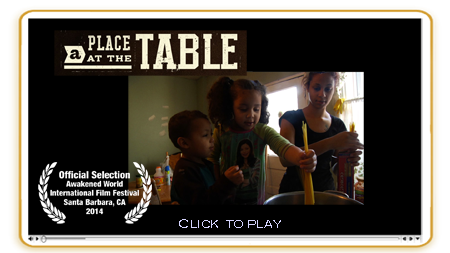 |
|
Kristi Jacobson & Lori Silverbush | Directors
CAST: Jeff Bridges, Tom Colicchio
Barbie Rosie Tremonica
David Beckmann, Joel Berg
Mariana Chilton, Rep. James McGovern
|
|
| |
"If another nation was doing this to our children, we’d be at war." ~~ Jeff Bridges, Founder of the End Hunger Network
50 million people in the U.S.—one in four children—don’t know where their next meal is coming from, despite our having the means to provide nutritious, affordable food for all Americans. Directors Kristi Jacobson and Lori Silverbush examine this issue through the lens of three people who are struggling with food insecurity: Barbie, a single Philadelphia mother who grew up in poverty and is trying to provide a better life for her two kids; Rosie, a Colorado fifth-grader who often has to depend on friends and neighbors to feed her and has trouble concentrating in school; and Tremonica, a Mississippi second-grader whose asthma and health issues are exacerbated by the largely empty calories her hardworking mother can afford.
Their stories are interwoven with insights from experts including sociologist Janet Poppendieck, author Raj Patel and nutrition policy leader Marion Nestle; ordinary citizens like Pastor Bob Wilson and teachers Leslie Nichols and Odessa Cherry; and activists such as Witness to Hunger’s Mariana Chilton, Top Chef’s Tom Colicchio and Oscar®-winning actor Jeff Bridges.Ultimately, A Place at the Table shows us how hunger poses serious economic, social and cultural implications for our nation, and that it could be solved once and for all, if the American public decides—as they have in the past—that making healthy food available and affordable is in the best interest of us all. |
|
|
|
_______________________________________________________________________________________________________________________________ |
| |
| |
|
|
|
Sameh Zoabi | Director
Amir Harel | Producer
John Marks | Executive Producer
Suheir Rasul and Sharon Rosen | Associate Producers
|
|
|
| |
Shaul, an Israeli, and Nizar, a Palestinian, seem to have little in common but for a shared spirit of entrepreneurship. They create a solar energy company with plans to bring renewable energy to communities in the Palestinian territories. Support for their venture is difficult to gain. From families who question them, to community members who threaten them, and government policies that make collaboration nearly impossible, Shaul and Nizar face many obstacles. Through everything, they grow to respect and trust one another. But though they continue to believe in their project, they recognize that their company cannot succeed without change. They take their story to the Internet and inspire others to work together. What began as a partnership for business becomes a partnership for peace. |
|
|
|
_______________________________________________________________________________________________________________________________ |
| |
| |
| |
|
| |
Following The Ninth: In The Footsteps of Beethoven’s Final Symphony, is a documentary film taking us on a cinematic journey across five continents and into the heart and soul of one of the world’s greatest works of art. Completely deaf and adrift from the people he loved, Ludwig van Beethoven composed his Ninth Symphony as an act of transcendence near the end of his life, in 1824. Looking into his own abyss, Beethoven wrote his Ode to Joy for himself, for the people of his day, and for all generations to come.
Today, Beethoven’s Ninth Symphony resonates still as the international anthem of hope. The Ninth buoyed the protesters in Tiananmen Square, provided solace to those struggling for freedom in Pinochet’s Chile, and continues to fill seats in symphony halls and karaoke bars from London to Tokyo and Cape Town. Following The Ninth captures the power and beauty of Beethoven’s grand and world-transforming achievement, touching the lives of people around the world for nearly 200 years.
Part road trip, part adventure, Following The Ninth is a story about the power of music and human resilience in dark times. |
|
|
|
_______________________________________________________________________________________________________________________________ |
| |
|
|
|
Katie Teague | Director/Producer/Editor
Michelle James | Producer
Diana J. Brodie | Editor
|
|
|
| |
Money & Life is a passionate and inspirational essay-style documentary that asks a provocative question: can we see the economic crisis not as a disaster, but as a tremendous opportunity? This cinematic odyssey connects the dots on our current economic pains and offers a new story of money based on an emerging paradigm of planetary well-being that understands all of life as profoundly interconnected. Money & Life invites us to meet the challenge of our time: to participate in the great transition to a sustainable, equitable and restorative economy that meets the needs and realities of the 21st century.
This Session SPONSORED BY: World Business Academy |
|
|
|
_______________________________________________________________________________________________________________________________ |
| |
| |
|
|
|
Daniel Karslake | Director/Writer/Producer
Helen Mendoza | Producer
Jen Fineran | Editor
Michael Huffington | Producer
Perch Ducote | Executive Producer
Jeanne Robertson | Executive Producer
Richard Purington & Ann Dickinson | Executive Producers
Mark Dixon & Sheri Heitker | Associate Producers
|
|
|
| |
In this new documentary Every Three Seconds, one of the stories profiled is about a boy is empowered to give back, and his cause ends up galvanizing his family, a country, and the world.When a catastrophic earthquake hit Haiti on Jan. 12, 2010, Charlie Simpson, a seven-year-old from London, was deeply moved and knew he must do something to help. Empowered by his family, Charlie decided to bike for Haiti and garnered the world's support.
It is a widely held misconception that hunger and extreme poverty will always be with us. The cost of these misperceptions is one life every three seconds—meaning 30,000 die needlessly every day. Charlie's ride is profiled in the documentary "Every Three Seconds" that looks at seemingly ordinary people who decide to take extraordinary actions in their communities. |
|
|
| |
WORKSHOP | Helen Mendoza, Perch Ducote; AGNT Host: Rev. Wendy Craig-Purcell |
|
|
_______________________________________________________________________________________________________________________________ |
| |
|
|
|
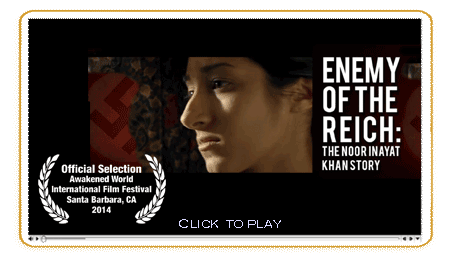 |
|
Alex Kronemer and Michael Wolfe | Executive Producers
Rob Gardner | Producer and Director
|
|
|
| |
Noor Inayat Khan was the daughter of a spiritual teacher from India, Hazrat Inayat Khan, and his American wife, Ora Ray Baker. After Noor’s birth in Moscow in 1914, the family moved first to England and then to Paris, where she was raised.In 1940, the Nazis invaded France and twenty-five year old Noor fled with her family to England. There she joined Britain’s Women’s Auxiliary Air Force and trained as a wireless operator. In early 1943, she began her assignment as a covert agent, joining Winston Churchill’s Special Operations Executive (SOE). The SOE worked with the French resistance fighters to sabotage industry and railroads in preparation for the D-Day invasions, after which they would co-ordinate attacks on the German army behind enemy lines, tying down troops and diverting the Germans from the invading Allied troops. From Paris, Noor Inayat Khan secretly transmitted critical information back to Britain.
In the next four months she was often the only link between the U.K. and the French Resistance. She was pursued by the Gestapo and finally betrayed by French collaborators. The Nazis arrested her and imprisoned her in Paris, where she fought back against her captors and escaped twice. Finally, she was sent to the infamous Dachau concentration camp in Germany where she was executed shortly before the end of WWII. The British and French subsequently awarded her their highest civilian honors. |
|
|
|
_______________________________________________________________________________________________________________________________ |
| |
| |
| |
|
| |
| |



